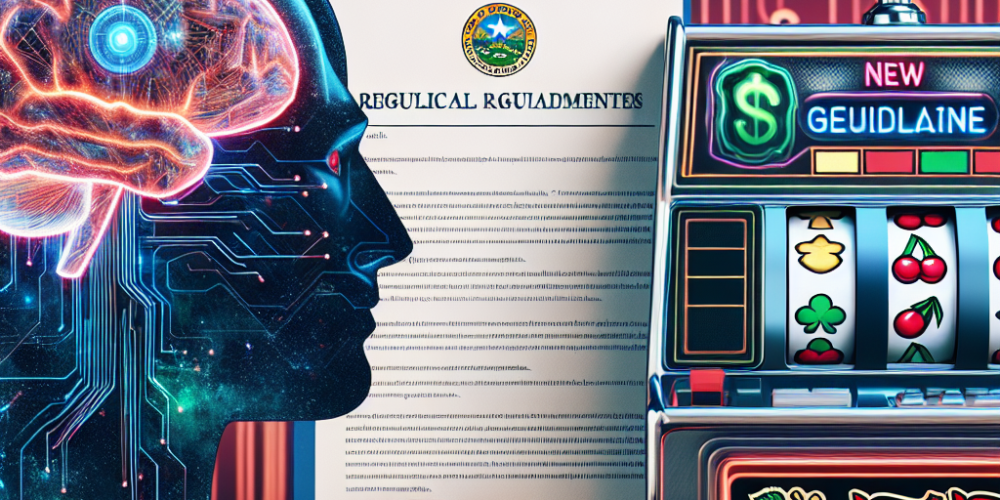Las Vegas, Nevada – In a groundbreaking move that could drastically reshape the gaming industry, Nevada’s Gaming Control Board (NGCB) has proposed a new set of regulations aimed at integrating artificial intelligence (AI) technologies with slot machines. The announcement, made earlier this week, seeks to enhance gaming security and user experience, setting a precedent for future technological integration in casinos across the state and potentially nationwide.
This initiative follows a year-long study conducted by the NGCB, which explored the implications and potential benefits of AI in gaming machines. The proposed regulations will not only facilitate advanced customer interaction but also aim to bolster surveillance and fraud detection systems, ensuring a safer gambling environment.
“With these new regulations, we are stepping into the future of gaming,” stated Elizabeth Carter, a spokesperson for the NGCB. “The integration of AI with slot machines will not only improve the customer experience but also strengthen the integrity of gaming operations.”
The proposed framework outlines specific guidelines for the integration of AI, focusing primarily on user data protection, the functionality of AI applications, and the transparency of machine operations. Casino operators will be required to undergo rigorous compliance checks and obtain new licenses that specifically address the use of AI technologies.
One of the key features of the AI integration is its personalized gaming experience. Slot machines equipped with AI can analyze player behavior and preferences, offering tailored game suggestions and adjustable difficulty levels. Additionally, these machines can provide real-time feedback to players, helping them understand their gaming patterns and potentially promoting responsible gambling behaviors.
Security is another major aspect of the proposed AI enhancements. By utilizing complex algorithms, AI can detect irregular patterns and potential fraudulent activities more efficiently than traditional surveillance systems. This capability is expected to significantly reduce the incidence of cheating and scams in casinos, providing a safer environment for both players and operators.
The reaction from the casino industry has been cautiously optimistic. Many operators see the potential benefits of AI, from attracting a younger, more tech-savvy demographic to reducing operational costs through improved efficiency. However, there are also concerns about the initial investment required and the ongoing maintenance of these high-tech machines.
“We are excited about the possibilities that AI can bring to our gaming floors,” said Michael Richardson, a casino owner in downtown Las Vegas. “But we must ensure that these technologies are implemented in a way that respects our customers’ privacy and the integrity of the game.”
Consumer response has also been mixed. While some regular casino-goers express enthusiasm for more interactive and engaging slot machines, others worry about the implications of AI, particularly regarding data security and the potential for increased gambling addiction.
To address these concerns, the NGCB has committed to a transparent implementation process, including public consultations and pilot programs before the full rollout of the new AI slot machines. The Board also plans to work closely with mental health organizations to monitor the impact of AI on gambling behaviors and to develop strategies to minimize harm.
As Nevada continues to lead the charge in casino gaming innovation, the rest of the world is watching closely. The success or failure of AI integration in slot machines could set a benchmark for the gambling industry globally, influencing future technological developments and regulatory approaches.
The NGCB expects to finalize the new regulations by the end of the year, with the first AI-enhanced slot machines anticipated to hit casino floors by mid-2024, marking a new era in the world of casino gaming.

Karine Gomez is an enthusiastic writer and avid gamer with a particular love for PlayStation and casino gaming. Her deep knowledge of gaming trends and casino dynamics makes her articles both informative and engaging. Karine’s passion for PlayStation games and her firsthand experience with casino play shine through in her writing, offering readers authentic insights and valuable tips.

